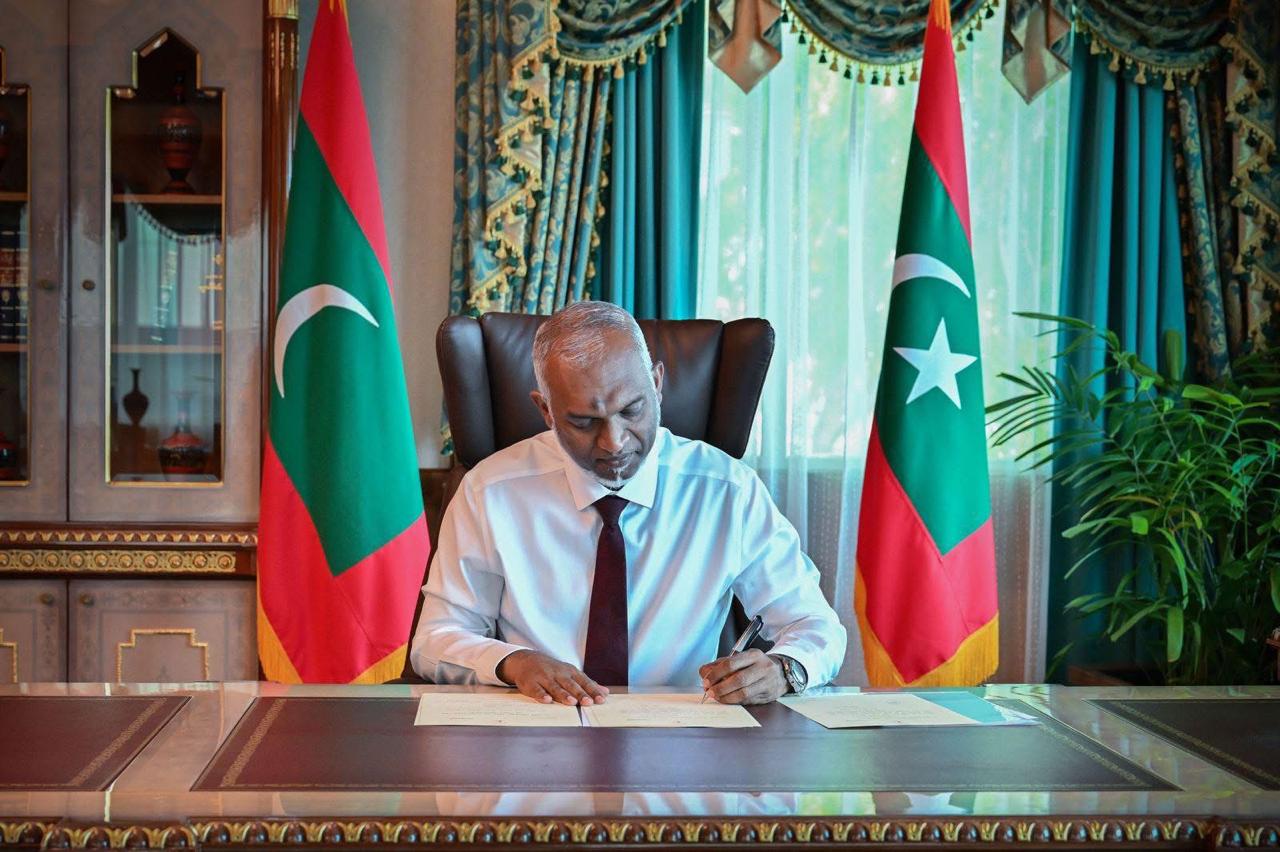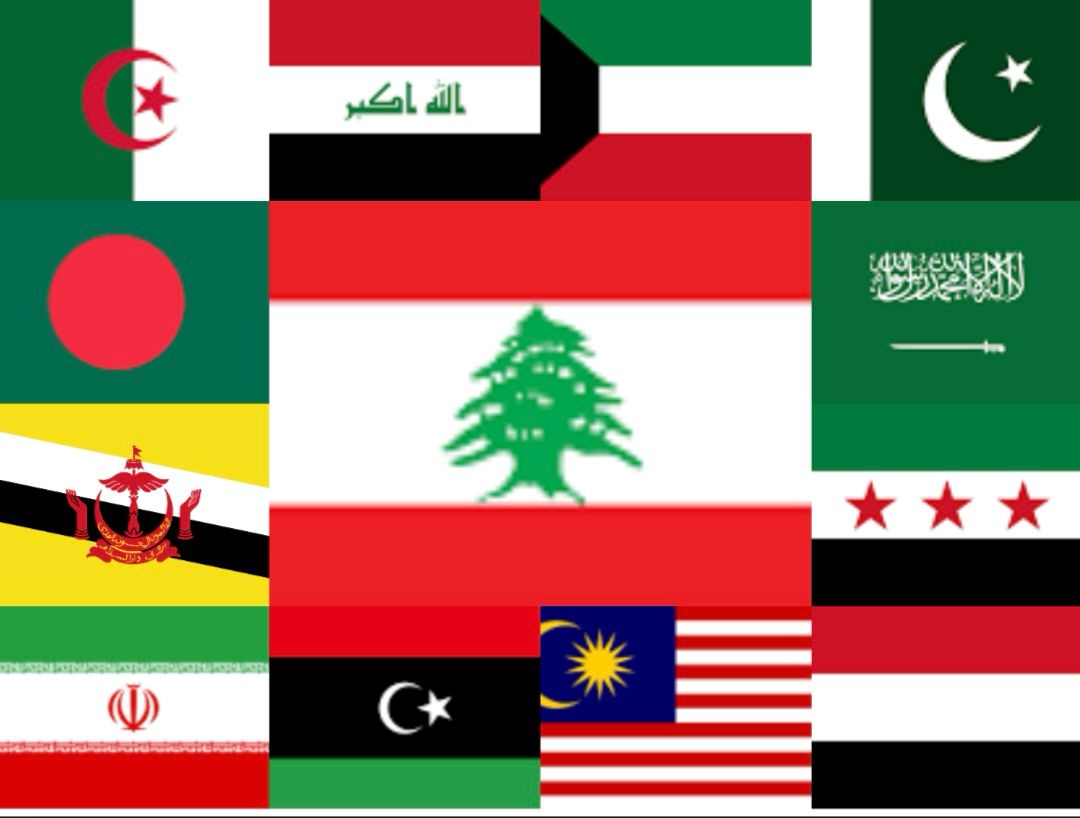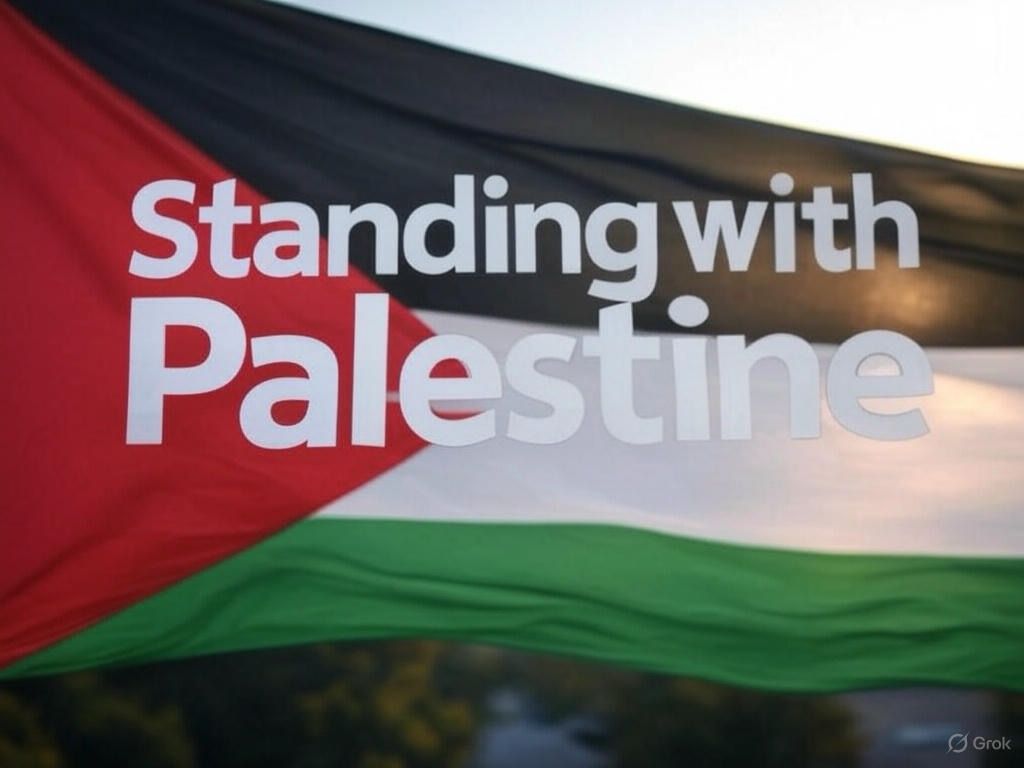On April 15, 2025, the Maldives made headlines when President Dr. Mohamed Muizzu signed a game-changing law, the Third Amendment to the Maldives Immigration Act, slamming the door shut on Israeli passport holders. This wasn’t just a policy tweak—it was a loud statement of support for Palestine, driven by the heartbreak and outrage over Israel’s actions in Gaza, which the Maldives has called out as “genocide.” Passed by the People’s Majlis, this decision brings back a ban dropped in the 1990s and puts the Maldives shoulder-to-shoulder with countries like Bangladesh, Pakistan, and others who’ve long said “no entry” to Israeli nationals. It’s a move that’s got people talking, not just in the Maldives but across the globe.

Muizzu didn’t stop at the ban. President launched the fundraising program “Maldivians in Solidarity with Palestine” to raise funds for Palestinian relief through his chosen special envoy. The Gaza crisis has reached a personal level throughout the Maldives because its people link closely with it. Under the takeovers of interim Dr. Muhammad Yunus in Bangladesh, the country reinforced its original ban while reversing earlier relaxed positions established by former Prime Minister Sheikh Hasina. Israeli passport holders face complete refusal from Pakistan just like during every similar situation. This article investigates the current developments regarding countries banning entry for Israelis and their motives and methods of handling such emotional challenges.
Why the Maldives Said “No”
The Maldives’ decision comes at a time when the world’s eyes are glued to the Israeli-Palestinian conflict, with Gaza’s suffering front and center. For the Maldives, a tiny island nation known for its turquoise waters and luxury resorts, this ban is a big deal. It’s not just about the 528 Israeli tourists who visited in early 2024—a steep drop from 4,644 the year before. It’s about taking a stand. President Muizzu, who’s been shaking things up since taking office, is responding to a wave of voices at home, from opposition groups like the Maldivian Democratic Party to his allies, all demanding action against Israel’s policies.
Tourism is the lifeblood of the Maldives, pumping in over 28% of the country’s GDP. So, saying “no” to any group of travelers, even a small one, is a gutsy move. Back in the 1990s, the Maldives opened its doors to Israeli tourists to boost its economy, but times have changed. Muizzu’s pushing a foreign policy that’s less about cozying up to Western powers and more about standing tall with nations that share his outrage over Palestine. It’s a risky play—especially with the Maldives scrambling for cash and even asking India for a bailout—but it’s winning him points with folks at home who want their country to mean something on the world stage.
Israel didn’t take this lying down. Its Foreign Ministry fired back with a travel warning, telling Israelis to steer clear of the Maldives and urging anyone there to pack their bags. With no diplomatic ties between the two countries, Israel says it’d be tough to help its citizens if things go south. For the Maldives, it’s a tightrope walk: keep the world’s tourists coming while standing up for what many of its people believe in.
Who Else Is Closing the Door?
The Maldives isn’t alone. It’s now part of a group of countries—mostly Muslim-majority—that don’t allow Israeli passport holders across their borders. Here’s the rundown of who’s on that list, based on what we know:
- Algeria: No ties with Israel, all in for Palestine.
- Bangladesh: Banned since its birth in 1971, now reaffirmed by Yunus.
- Brunei: No Israel on its friend list, rooted in faith-based solidarity.
- Iran: Calls Israel an enemy, no entry allowed.
- Iraq: No diplomatic relations, no Israeli visitors.
- Kuwait: Stands with Palestine, and keeps the ban.
- Lebanon: Sees Israel as an enemy, strict no-go.
- Libya: Longtime ban, no ties with Israel.
- Malaysia: Loud and proud of Palestine, no diplomatic relations.
- Pakistan: Steadfast ban, tied to its love for the Palestinian cause.
- Saudi Arabia: No formal ties, though whispers of change have stirred debate.
- Syria: Israel’s an enemy state, no entry.
- Yemen: No relations, no Israeli passports welcome.

These countries share a mix of reasons: some don’t recognize Israel at all, others are showing love for Palestine, and a few, like Iran and Lebanon, have laws labeling Israel as the enemy. It’s not just about politics—it’s about identity, faith, and standing up for what their people believe. The Maldives, with its tourism-heavy economy, sticks out on this list. Unlike oil-rich or geopolitically shielded nations, it’s betting that this ban won’t scare off the millions of other tourists who keep its resorts buzzing.
Bangladesh’s Story: Back to Its Roots
The government of Bangladesh has maintained its policy of rejecting entry to all persons holding Israeli passports since its independence in 1971. The country displays national pride because of its Palestinian support and status as a Muslim-majority state with strong advocacy in the Organization of Islamic Cooperation. The written denial of Israeli passport entry has been present on Bangladeshi passports as a clear indicator of national policy for multiple years.
Things got murky under Sheikh Hasina, who led Bangladesh from 2009 to 2024. Hasina didn’t officially lift the ban, but she made moves that raised eyebrows. There were quiet talks about trade with Israel, maybe even tech or farming deals, nudged along by Bangladesh’s growing friendship with India, a big Israel ally. In 2021, the “except Israel” line vanished from Bangladeshi passports, sold as a paperwork update but seen by many as a hint of warming up to Israel. That didn’t sit well with pro-Palestinian groups or opposition parties, who felt Hasina was straying from Bangladesh’s core values.
Everything changed in August 2024, when a student-led uprising toppled Hasina’s government. Enter Dr. Muhammad Yunus, a Nobel Peace Prize winner, stepping in as Chief Adviser to steady the ship. One of his first big moves? Reaffirming the ban on Israeli passport holders. It was a crowd-pleaser, especially for the students and activists who’d taken to the streets. For them, it was about reclaiming Bangladesh’s heart—its unwavering support for Palestine.
But Yunus has his hands full. Dhaka’s streets are getting rough, with gangs stepping into a gap left by police who aren’t keen to get back to work. The economy’s shaky, and Yunus’s team is aiming for elections by early 2026. Bringing back the ban has given him a boost with young voters, but it’s also poking at ties with India, which had Hasina’s back and doesn’t love this hardline stance. It’s a tough spot, but Yunus seems ready to bet on principle for now.
Pakistan: No Sway, No Way
Pakistan’s ban on Israeli passport holders is like a rock—unmoving, unchanging. Since the country was founded, it’s stood firm for Palestine, with no diplomatic ties to Israel and passports that flat-out say Israel’s off-limits. It’s one of those rare things everyone in Pakistan agrees on, no matter who’s running the show. The public’s passion for Palestine runs deep, and even a hint of softening the ban—like stray media rumors—sparks instant pushback.
Pakistan’s stance is locked in by its view of Israel as a non-recognized state, a position it shares with places like Iran and Syria. It’s a loud voice in the OIC, always calling out Israel’s actions. Unlike Bangladesh, which flirted with change under Hasina, Pakistan never budged, not even when money was tight or Israel’s allies came knocking. It’s a policy carved in stone, built on faith and history.
What It All Means
The Maldives’ ban, Bangladesh’s recommitment, and Pakistan’s steady stance aren’t just about who can cross a border. They’re about shouting to the world where these countries stand on Palestine. For the Maldives, it’s a gamble—tourism’s king and even a small hit could sting. But Muizzu’s playing to his base, boosting his street cred and tweaking ties with India, which he’s been distancing himself from with his “India Out” vibe.
In Bangladesh, Yunus’s move to lock in the ban is a nod to the students who brought him to power. It’s a way to say, “We’re back to who we are.” But with crime spiking and India watching closely, it’s a risky time to make waves. Pakistan’s ban, meanwhile, keeps it anchored, though it boxes in its options in a world where some neighbors are cozying up to Israel, like those in the Abraham Accords.
These bans show how tricky it is to stick to your guns while playing the global game. The Maldives and Bangladesh are under pressure to keep their pro-Palestinian fire burning without burning bridges with powerful players. The Maldives’ move might spark others to follow, but its cash-strapped reality shows there’s a cost to taking a stand.
Wrapping It Up
The Maldives’ ban on Israeli passport holders, rolled out on April 15, 2025, is a gutsy call, putting it alongside Bangladesh, Pakistan, and a handful of others who’ve drawn a line in the sand. Bangladesh, under Yunus, is back to its 1971 roots, shrugging off Hasina’s flirtations with change to stand tall for Palestine. Pakistan’s ban is as steady as ever, a reflection of its unshakable commitment. These aren’t just policies—they’re stories of identity, resistance, and the tough choices these nations face. As the world keeps shifting, the Maldives, Bangladesh, and Pakistan are holding fast to their principles, even when the path ahead looks bumpy.

“The Maldives’ ban on Israeli passport holders, alongside Bangladesh’s recommitment and Pakistan’s unwavering stance, is more than a border policy—it’s a bold declaration of solidarity with Palestine, rooted in identity and principle, even at the cost of economic and diplomatic risks.”




